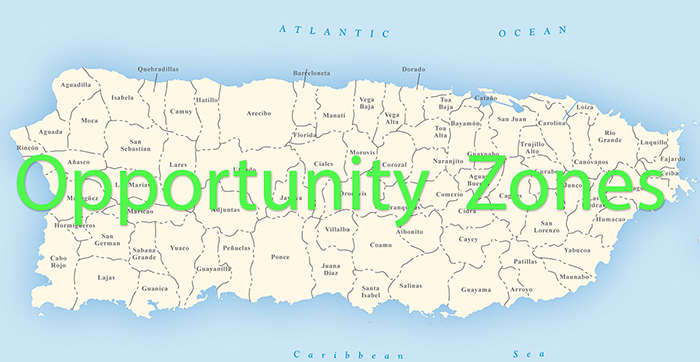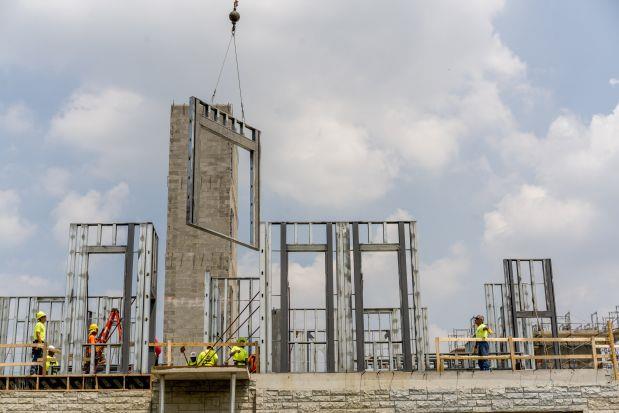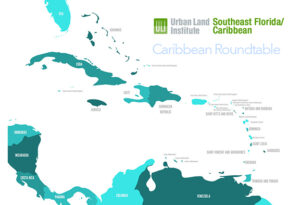
Big Stock Windfall? New Rule Defers Taxes With Real Estate Investment – WSJ
U.S. aiming to attract $100 billion in development with ‘opportunity zones’ created by tax overhaul
Billions of dollars have started piling into new real-estate funds targeting disadvantaged U.S. neighborhoods, as investors line up to capitalize on a section of last year’s tax overhaul.
The tax bill created more than 8,000 tax-advantaged “opportunity zones.” They range from parts of New York, Los Angeles and Washington, D.C., to rural areas and the entire U.S. territory of Puerto Rico. On Thursday, Treasury Secretary Steven Mnuchin predicted the zones will attract over $100 billion in private capital.
Opportunity-zone investments could be “the biggest thing to hit the real-estate world in perhaps the past 30 or even more years,” says Bruce Stachenfeld of law firm Duval & Stachenfeld.
Treasury Secretary Mnuchin speaks during a working session on opportunity zones in February. On Thursday, Mr. Mnuchin predicted the zones will draw more than $100 billion in private capital to disadvantaged areas.
The zones have multiple tax benefits. Anyone with capital gains—from real estate, Amazon shares or most any other source—can defer taxes on them until 2026 if they roll those gains into investments in these designated zones. Investors can also get a discount of up to 15% on those taxes when they eventually pay them. And capital gains from qualified investments in the zones that are held for at least 10 years won’t be taxed at all.
“Billions of dollars, maybe more, will be coming into the market, with the investors saying, ‘We only want to put this money into these communities because of these tax benefits,’” said Seth Pinsky, executive vice president of New York developer RXR Realty, which is exploring creating an opportunity-zone fund.
So many investors are expected to take advantage of the tax break and invest in these zones that it will cost the government $7.7 billion between 2018 and 2022. The cost will shrink to $1.6 billion over 10 years as deferred taxes are paid, according to the Joint Committee on Taxation. Unrealized capital gains on stocks and mutual funds held by U.S. households alone total about $2.3 trillion, according to a report by the Milken Institute’s Center for Financial Markets, citing research from the Economic Innovation Group.

The tax benefits apply to most equity investments in the zones, including real-estate development and operating businesses such as restaurants, stores and technology startups. But most of the initial investments are expected to be in real estate, partly because opportunity-zone tax law provides the most benefits to investors who can quickly deploy a lot of capital.
“Doing a $300-million real-estate development project is so much easier than 300 different $1-million operating-company investments,” said Aron Betru, managing director with the Milken center.
Developers and investors say there are still many unanswered questions, including whether the tax breaks will produce the intended benefits for targeted neighborhoods. They’re hoping for more clarity when the Internal Revenue Service issues further guidance, which is expected to happen any day.
The program—which was partly conceived by Sean Parker, the entrepreneur who helped launch Facebook and Napster—has raised concerns among community groups about the impact on existing residents of low-income areas. “There’s a tipping point where the people who were there before get pushed out, and the people who come in are the people who are benefitting,” said Mr. Pinksy.
But real-estate investment firms, developers and others are already vying for positions at the starting line. Mr. Betru says he has heard about close to 20 firms that have either started raising or are planning to raise funds ranging from $100 million to $500 million.
James Lang, a tax attorney in Greenberg Traurig’s Tampa, Fla., office, says he has fielded 10 to 15 calls each day on the topic since July and his firm has assembled about 45 lawyers to focus on opportunity-zone investing.
Some developers that happen to be working on projects inside zones already find themselves in prime positions. Florida-based firm Waypoint Residential was planning a 250-unit rental apartment project in the suburbs of Louisville, Ky., before the area was designated an opportunity zone.
Raising capital turned out to be a breeze, said Scott Lawlor, Waypoint’s chief executive. “We were 50% oversubscribed within two weeks.”
Developers are aware that opportunity-zone investments will be risky despite the tax benefits. To qualify, real-estate investments have to be ground-up projects or major rehabilitations.
“When this much dough forms this quickly with this much of a buzz around it, you just have to step back” and be careful, said Mr. Lawlor.
The zones could be a major boon for real-estate fundraising, which has been getting tougher. A total of 48 private real-estate funds closed globally in the second quarter of 2018 for a combined $23 billion, down from $38 billion raised by 75 funds in the first quarter, according to data firm Preqin.
Small-to-midsize firms with experience investing in disadvantaged areas have largely been the first movers in the opportunity-zone business. Firms that announced plans to raise funds include Youngwoo & Associates, of New York, whose current projects include redeveloping the historic Bronx Post Office into a retail and office project, and Washington, D.C.–based Fundrise, which is considering possible investments in Los Angeles, Oakland, Dallas and Seattle.
Jessica Millett, co-chair of Duval & Stachenfeld’s Tax Practice, said that in addition to real-estate developers, she has also received interest in opportunity zones from investment bankers, advisers representing technology executives and other investors.
Some large banks already involved in economic development have also become active in the zones. For example, Goldman Sachs Group Inc.’s urban investment group has already made $70 million worth of deals in opportunity zones in 2018 and has over $1 billion of possible transactions in the pipeline, according to Margaret Anadu, the group’s head.
Other big names in real-estate investment, such as Blackstone Group ,KKR and Apollo Global Management LLC, are expected to sit on the sidelines for now, according to people close to the firms. These firms tend to make larger investments than the deals that will likely be made in opportunity zones.
“Deals will happen, but I don’t think it will be billions of dollars of equity from one manager,” said Ralph Rosenberg, KKR’s global head of real estate.
By Peter Grant and Gregory Zuckerman WSJ Updated Oct. 2, 2018 11:43 a.m. ET
Ruth Simon contributed to this article.





No comment yet, add your voice below!